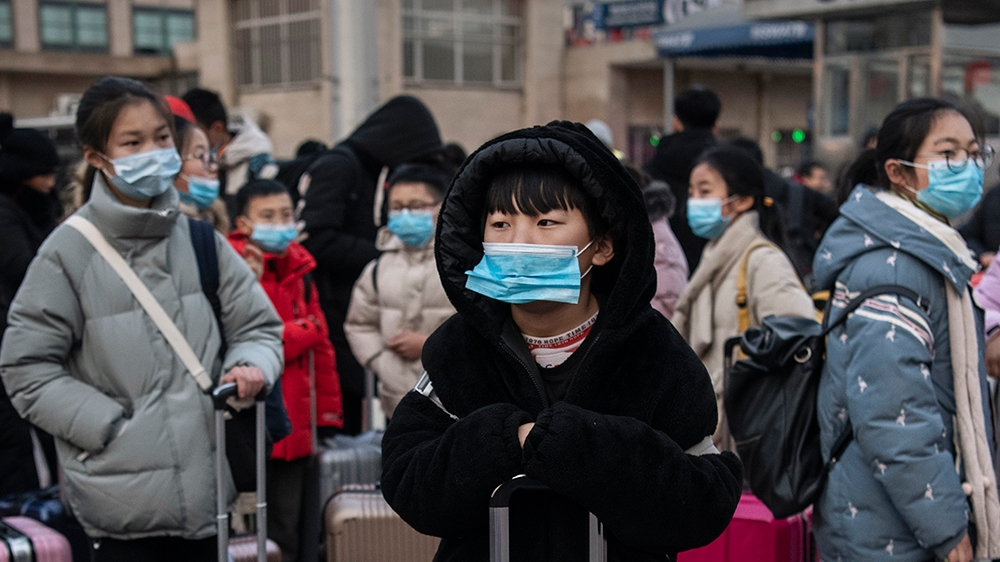Policymakers in Japan on Friday braced for a sharp contraction in October-December growth and warned of a drop in output and consumption due to the coronavirus outbreak, as Asian economies sounded the alarm over darkening economic outlooks.
Singapore‘s economy could enter recession due to the blow from the coronavirus outbreak, its prime minister said on Friday, while neighbouring Malaysia said it would announce a stimulus package to mitigate the negative effects of the virus outbreak.
More:
Meanwhile, in China, at least two economists at government-linked think-tanks have in recent weeks projected a loss of up to one percentage point from China’s growth rate in the first quarter of 2020 and even for the full year.
Bank of Japan Executive Director Eiji Maeda said the country’s gross domestic product (GDP) may have suffered a “big contraction” in the final quarter of last year due to sluggish overseas demand and damage to consumption from last year’s sales tax increase.
“Japan’s economy is expected to continue expanding moderately as a trend,” thanks to robust capital expenditure and government spending, Maeda told Parliament.
“But we need to be vigilant against various risks such as the impact the coronavirus outbreak could have on output and spending by inbound tourists,” he said.
Economy Minister Yasutoshi Nishimura also told reporters the virus outbreak, as well as unusually warm weather that hurts sales of winter clothing, were “fresh factors weighing on the economy”.
Analysts polled by Reuters expect Japan’s economy to have shrunk an annualised 3.7 percent in the October-December quarter, which would be the fastest pace of decline since 2014. The GDP data is due 8:50am on Monday (23:50 GMT on Sunday).
Japan is among the countries worst affected by the epidemic outside China, with 251 confirmed cases including those on a cruise ship.
Some analysts expect Japan’s economy to suffer another contraction in the current quarter as China’s virus outbreak hurts exports, output and consumption through a sharp drop in overseas tourists.
A separate Reuters poll released on Friday showed the coronavirus epidemic is expected to shave up to 0.2 percentage points off Japan’s economic growth rate this year.
The government decided on Friday to spend 10.3 billion yen ($93.8m) from budget reserves to respond to the coronavirus.
Finance Minister Taro Aso said the government was ready to take additional steps depending on how big the effect from the outbreak could be.
BOJ’s Maeda said the central bank will support the economy by maintaining its enormous stimulus programme but stopped short of signalling additional monetary support.
Maeda’s remarks suggest the BOJ does not see the virus impact as big enough yet to alter its economic projections.
Stimulus packages
In Singapore, the government is set to roll out a hefty package of budget measures on Tuesday to cushion the economic blow from the epidemic, with some analysts expecting it to run its biggest deficit in more than a decade.
Economists at Citi and Maybank expect a virus relief package of at least 700 million Singapore dollars ($505m) after Singaporean Prime Minister Lee Hsien Loon said the effects of the coronavirus would be “significant”.
“The impact will be significant at least in the next couple of quarters. It is a very intense outbreak,” Lee said in a video interview posted on his Facebook page.
“I can’t say whether we will have a recession or not. It’s possible, but definitely our economy will take a hit,” Lee said in remarks made to media at Singapore’s main Changi airport.
Lee said business at the airport had suffered with flights down by a third.
Singapore has in effect banned all visitors from China, its biggest source of tourists, while some countries have advised against travel to Singapore which has one of the highest virus infection tallies outside China at 58.
The Asian business hub had just been showing signs of recovery from its lowest growth rate in a decade last year – a paltry 0.7 percent – when the outbreak spread to the city-state in late January.
Singapore is due to release final fourth-quarter growth data on Monday, and economists are anticipating revisions to its 2020 growth forecast range of 0.5-2.5 percent.
Meanwhile, Malaysia’s Ministry of Finance said in a statement on Friday that it would announce a stimulus package in the coming week to mitigate the economic effects of the coronavirus outbreak
Assistance will be given to the affected sectors, Minister of Finance Lim Guan Eng said. The government said on Tuesday that the stimulus package would be earmarked for the aviation, retailing and tourism industries.
